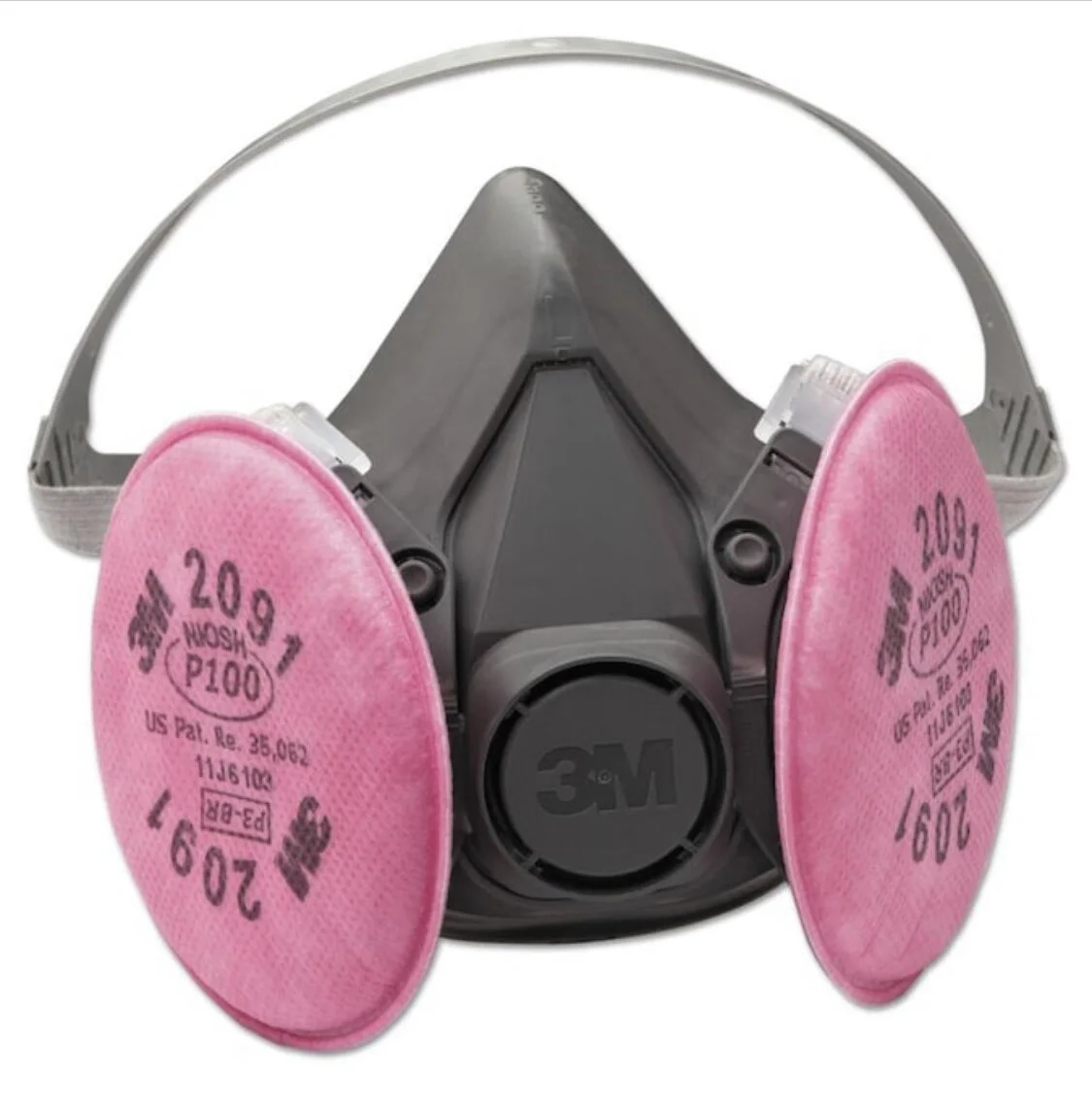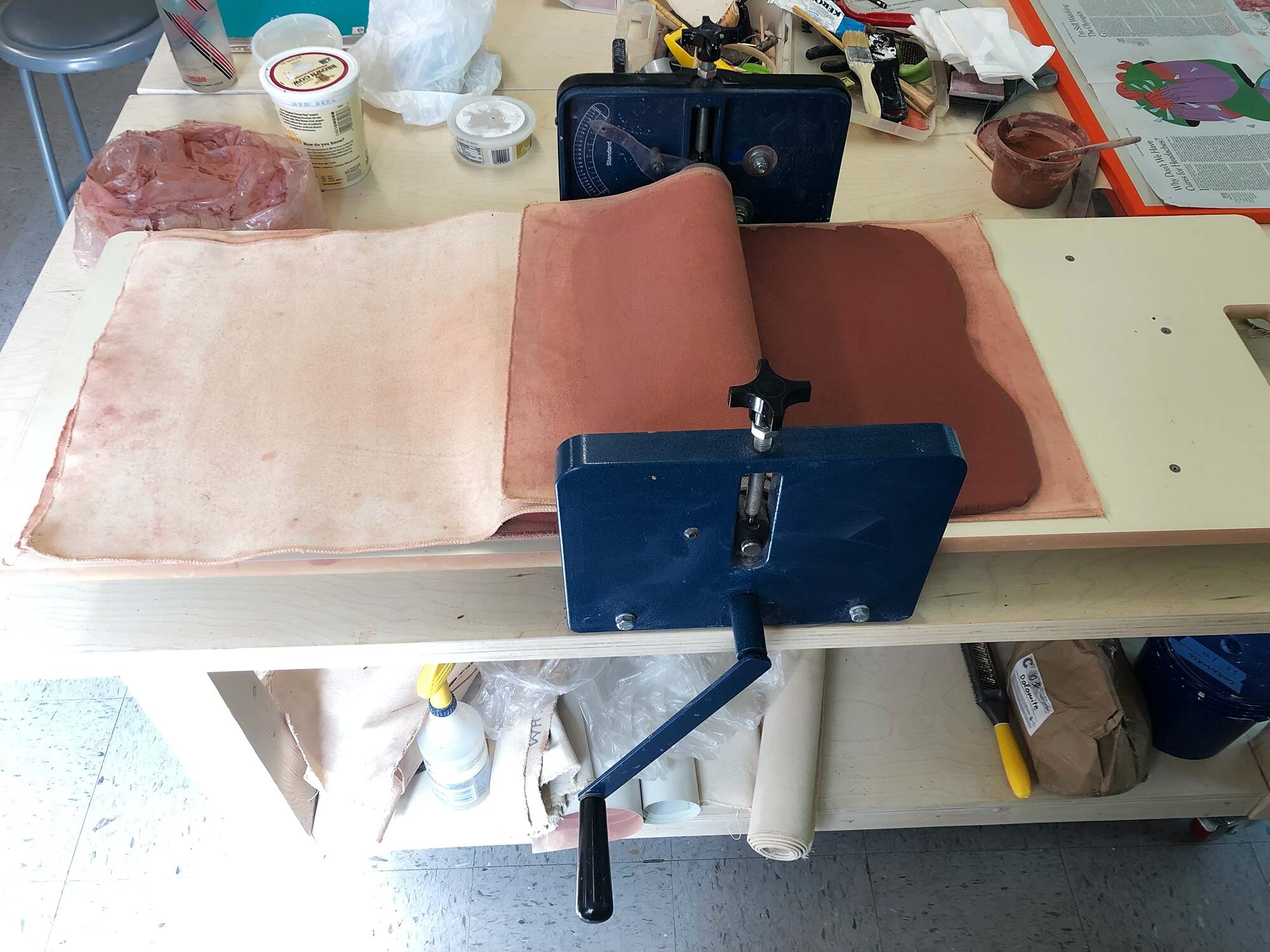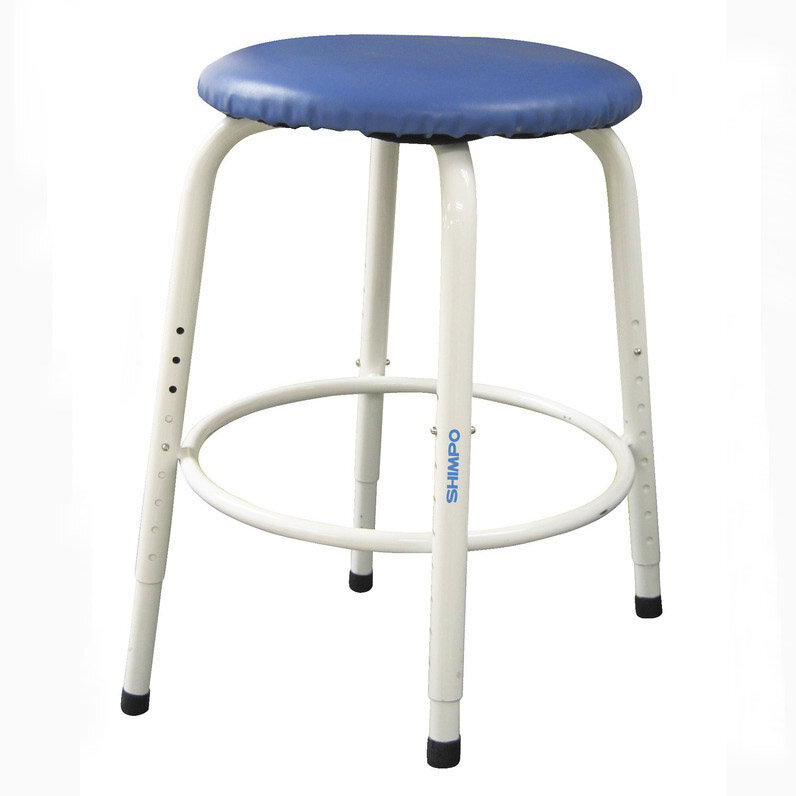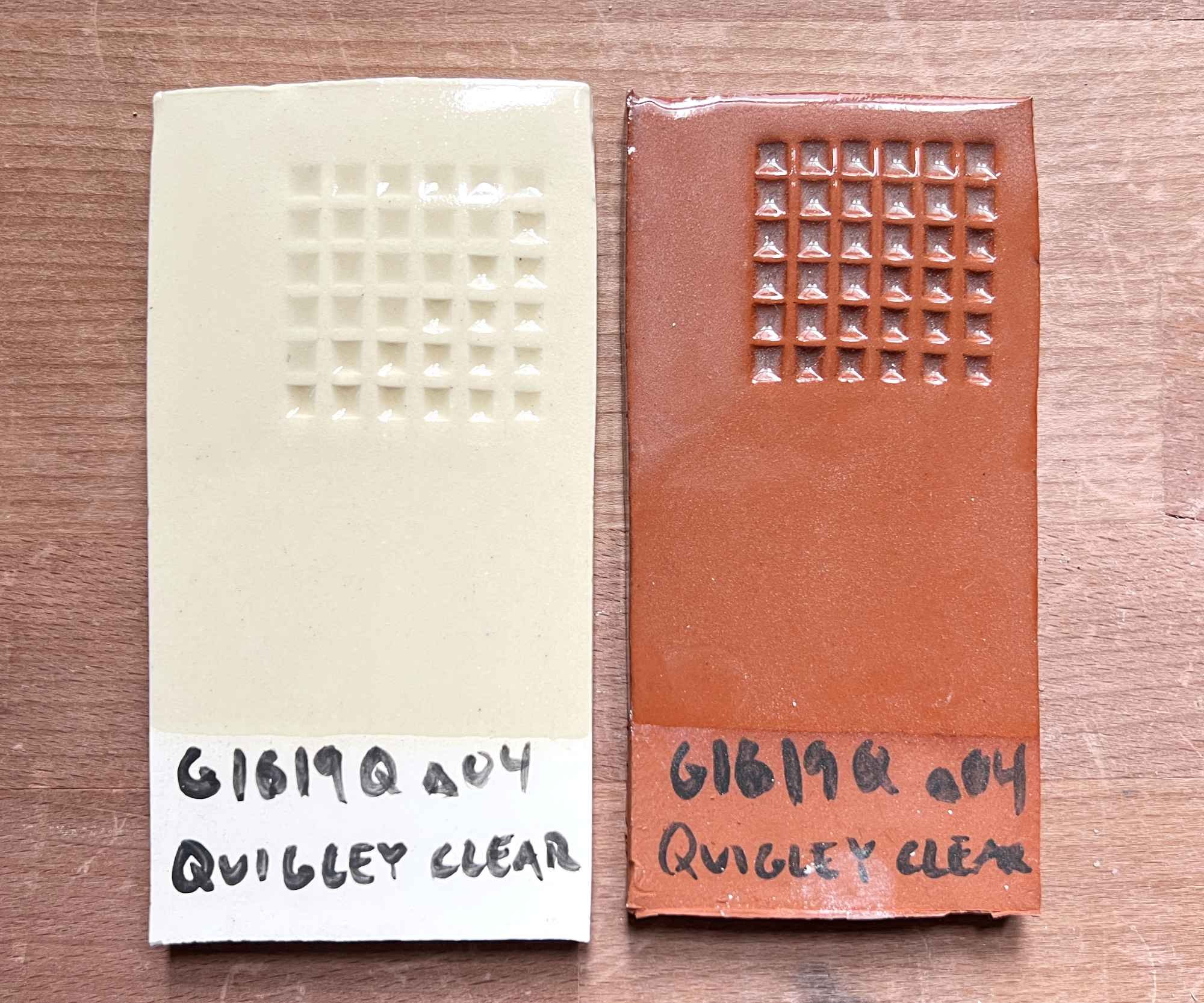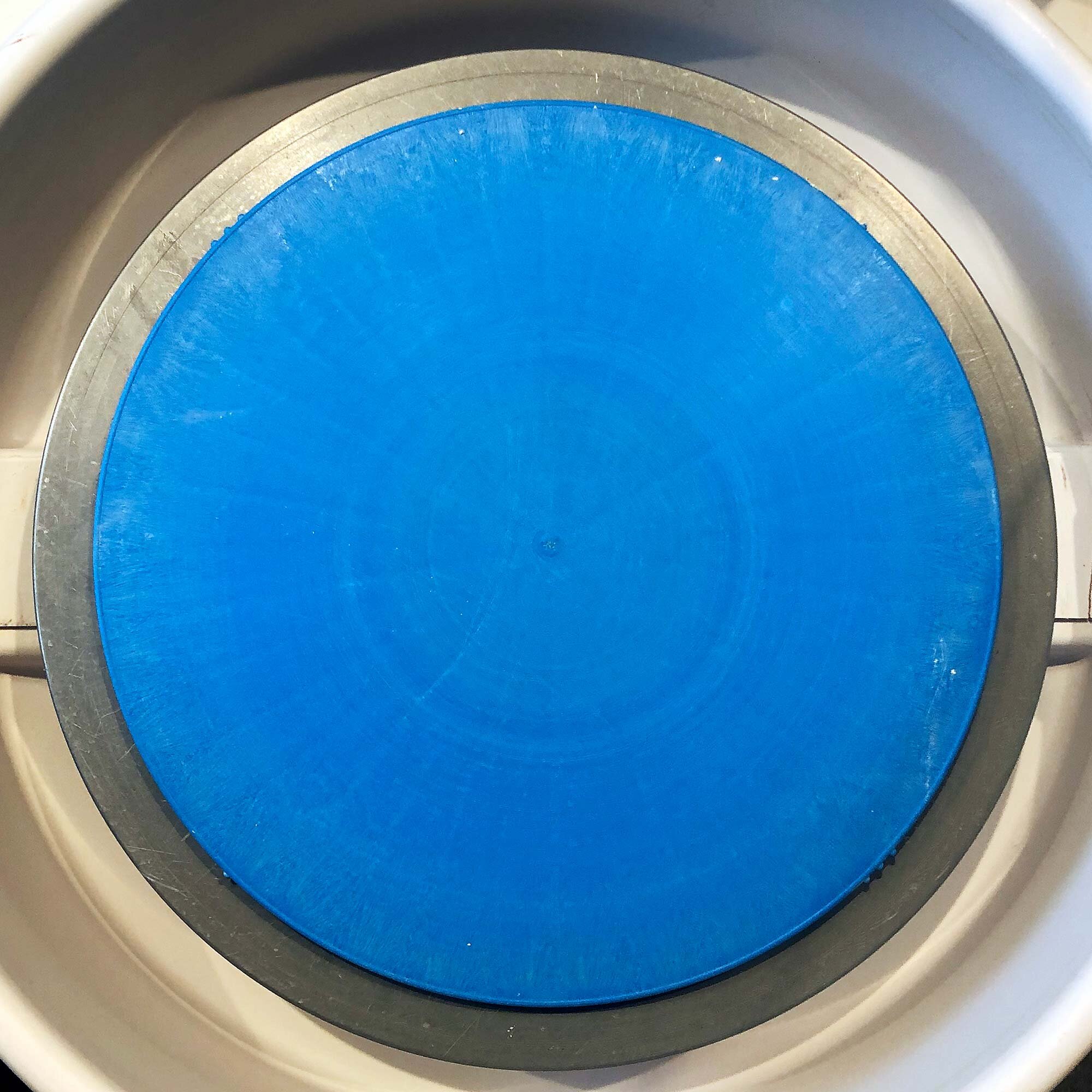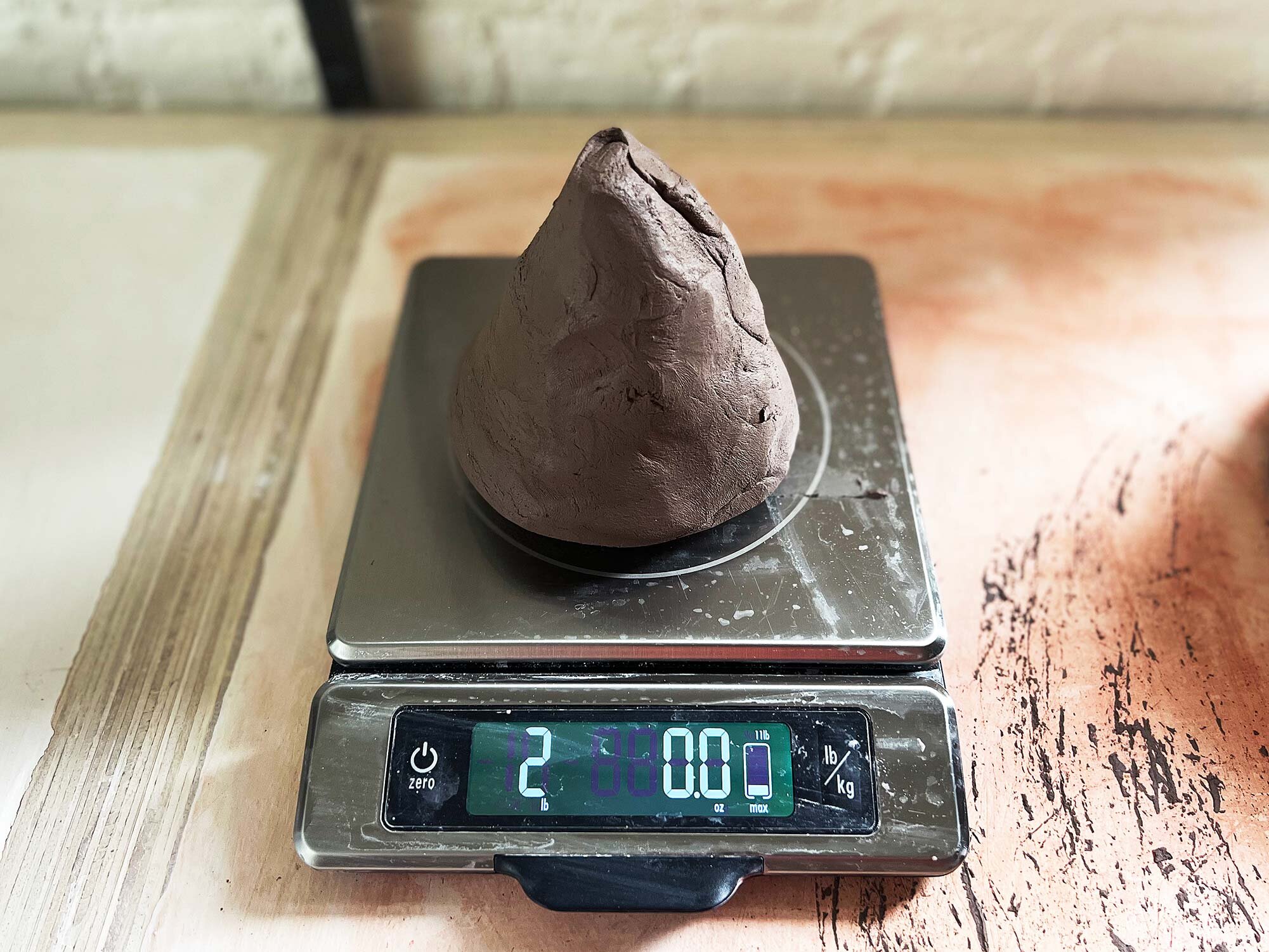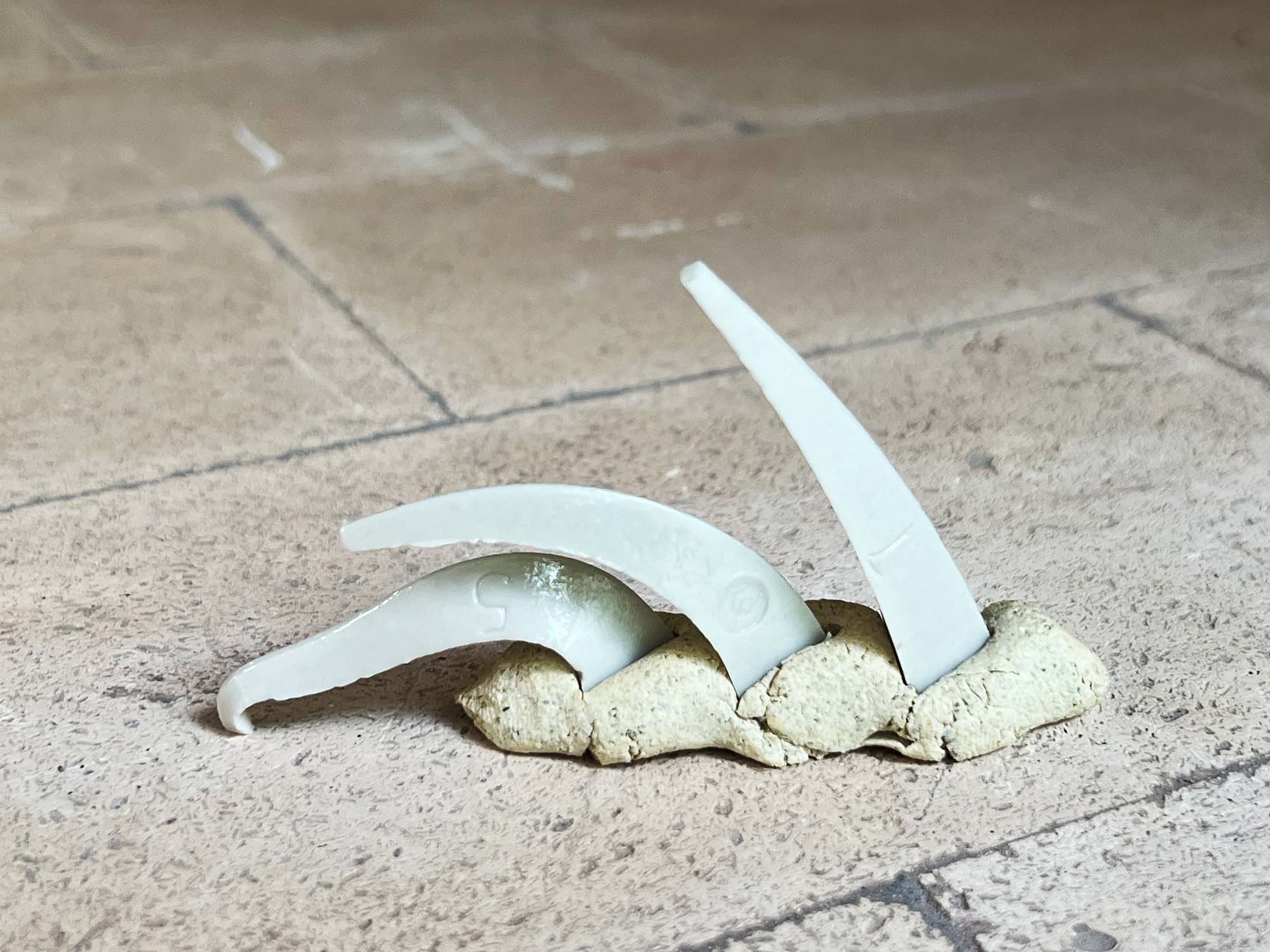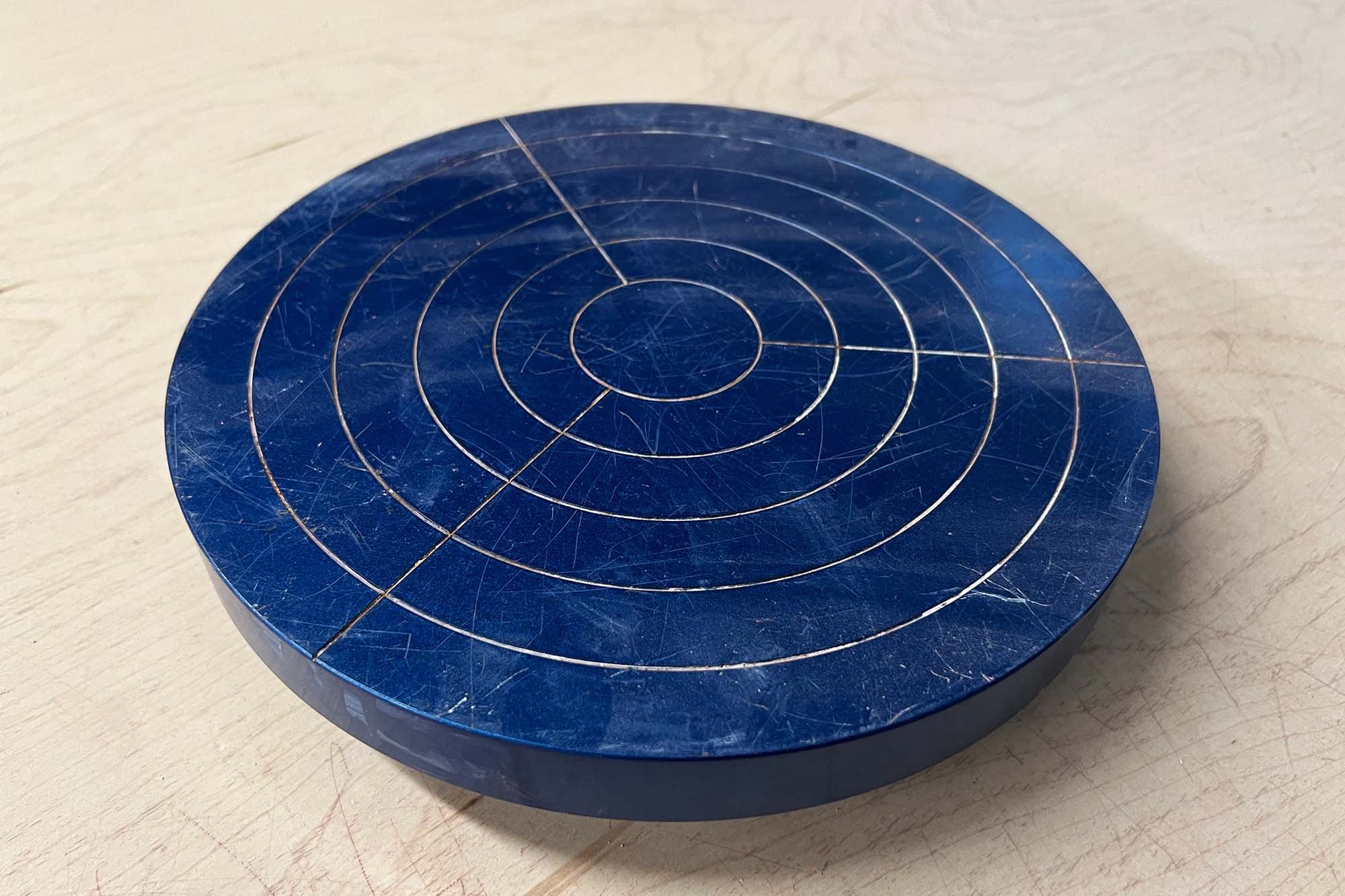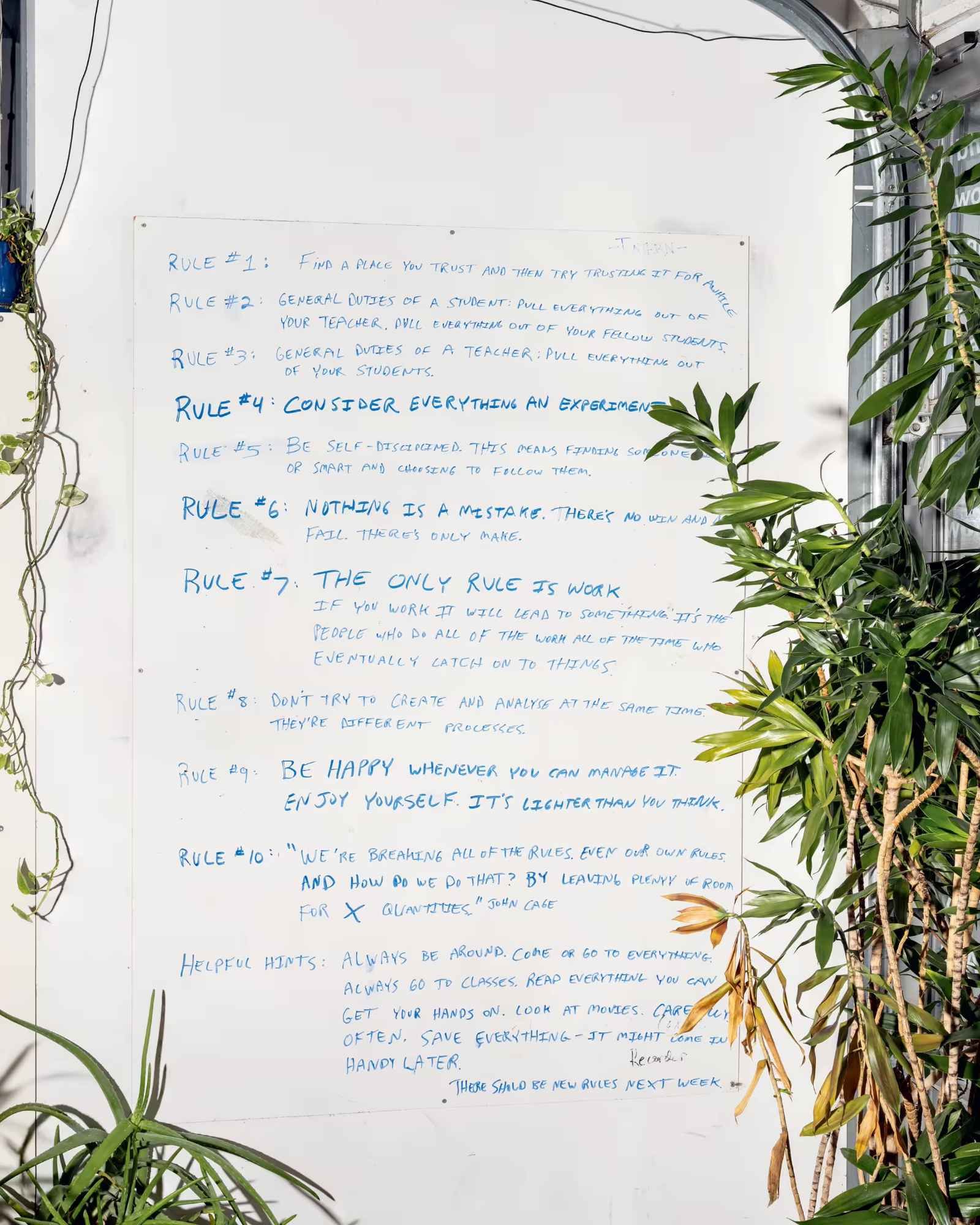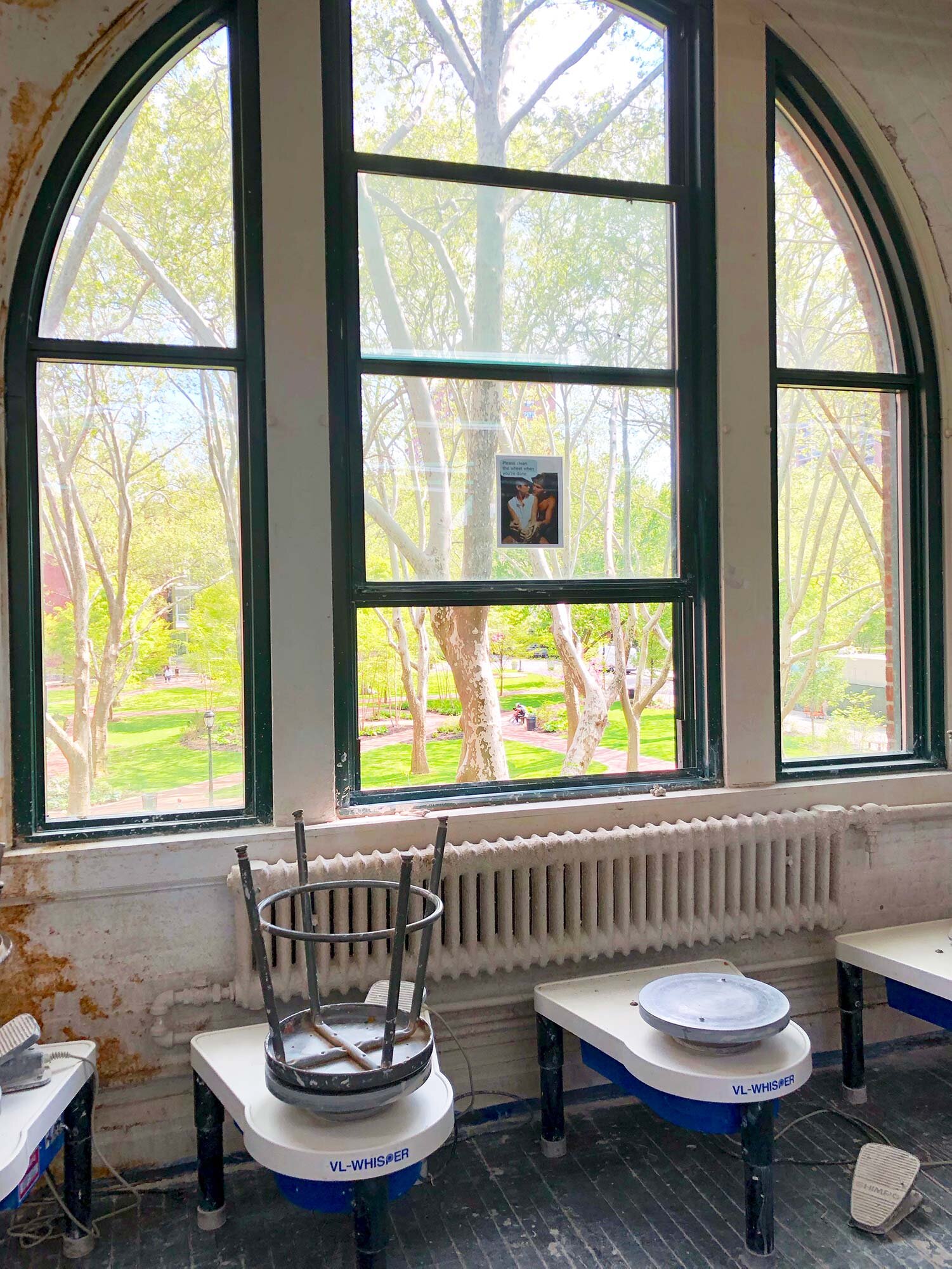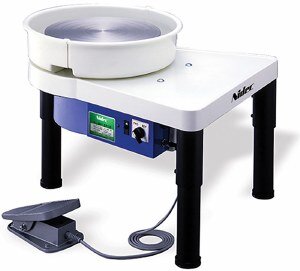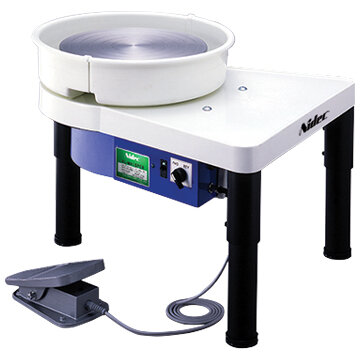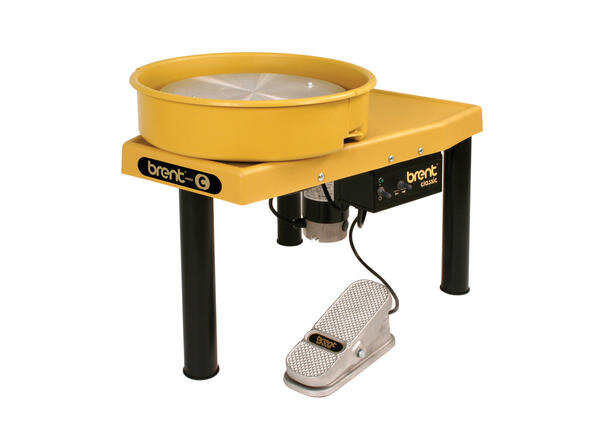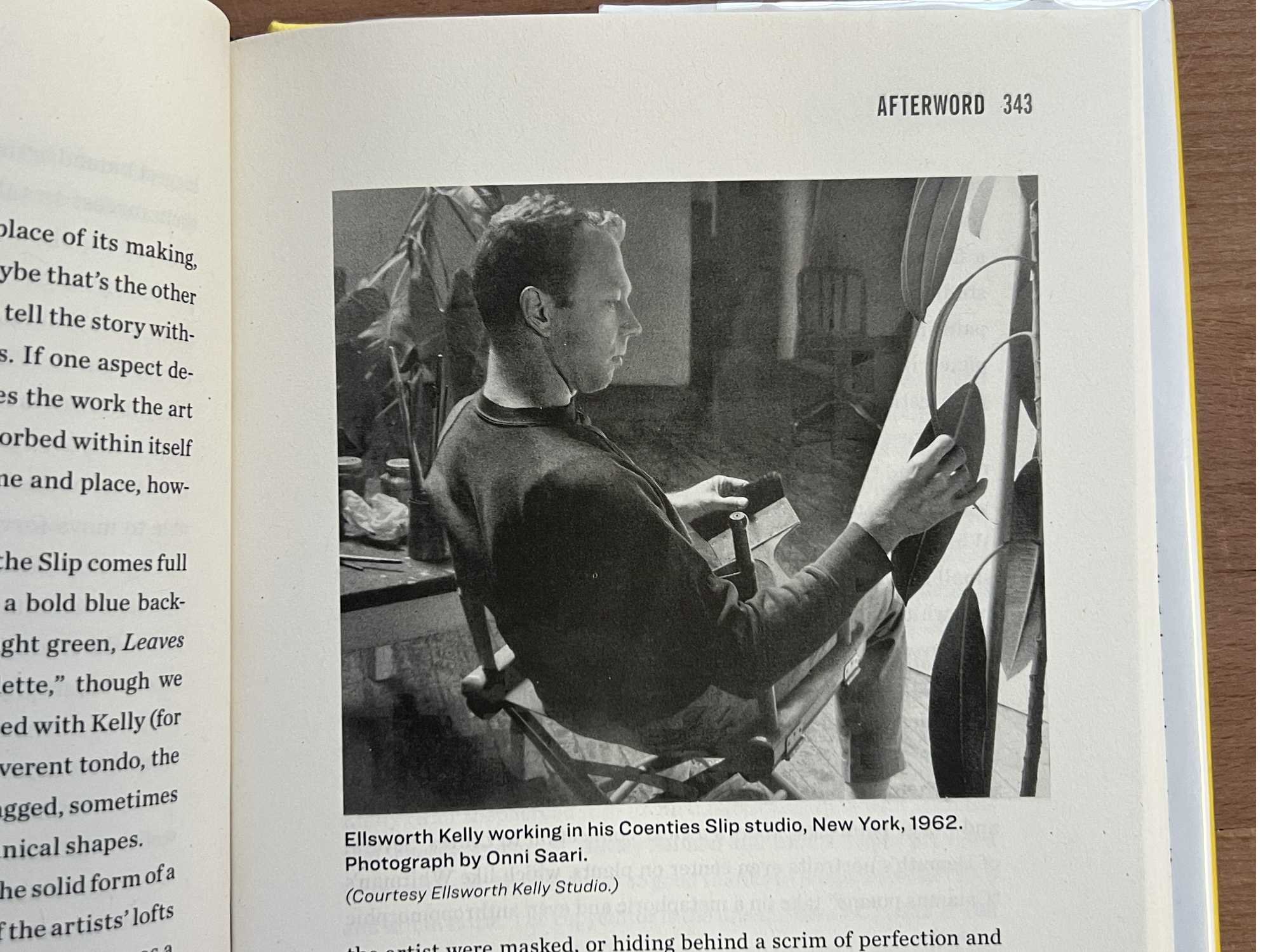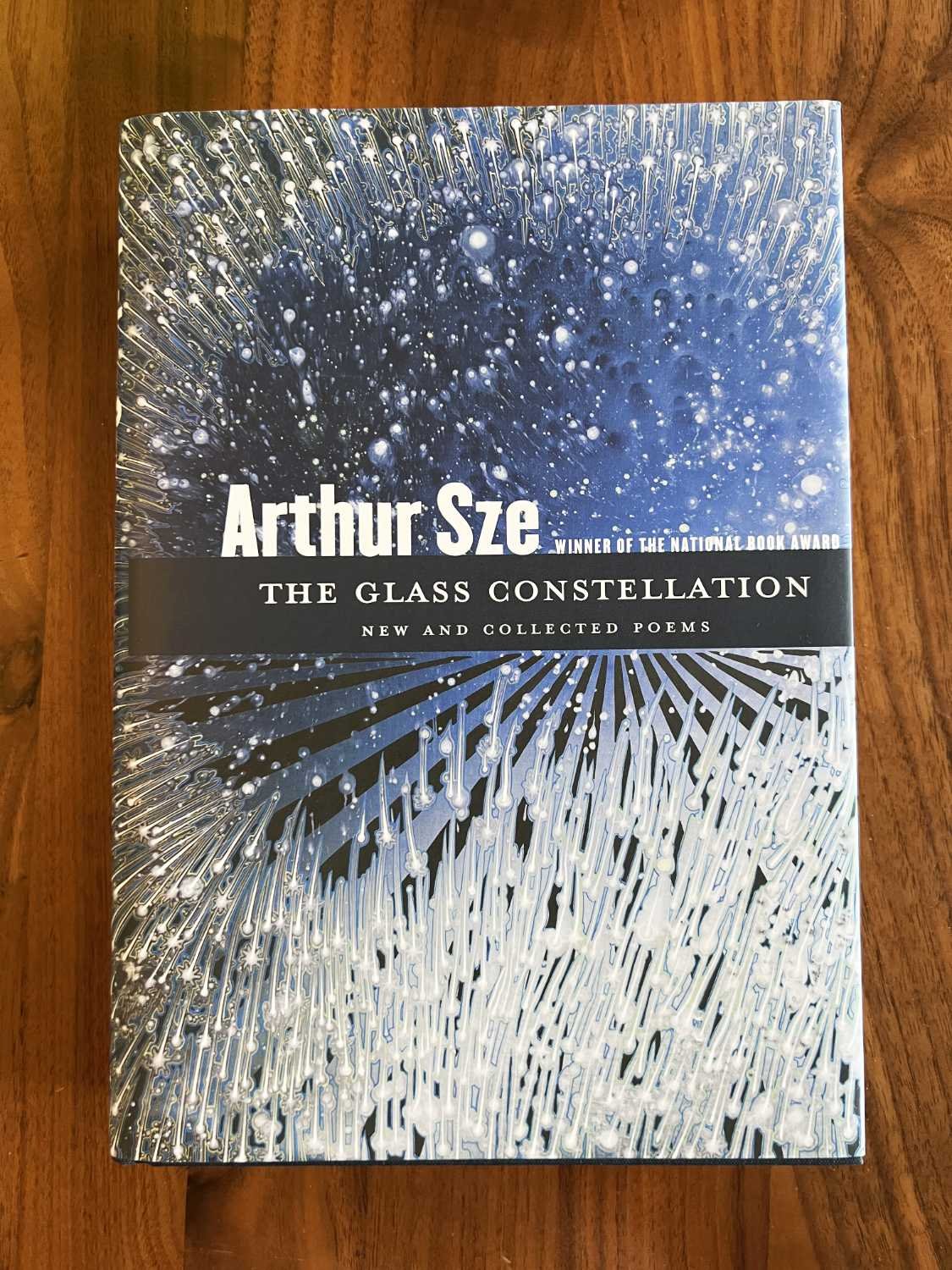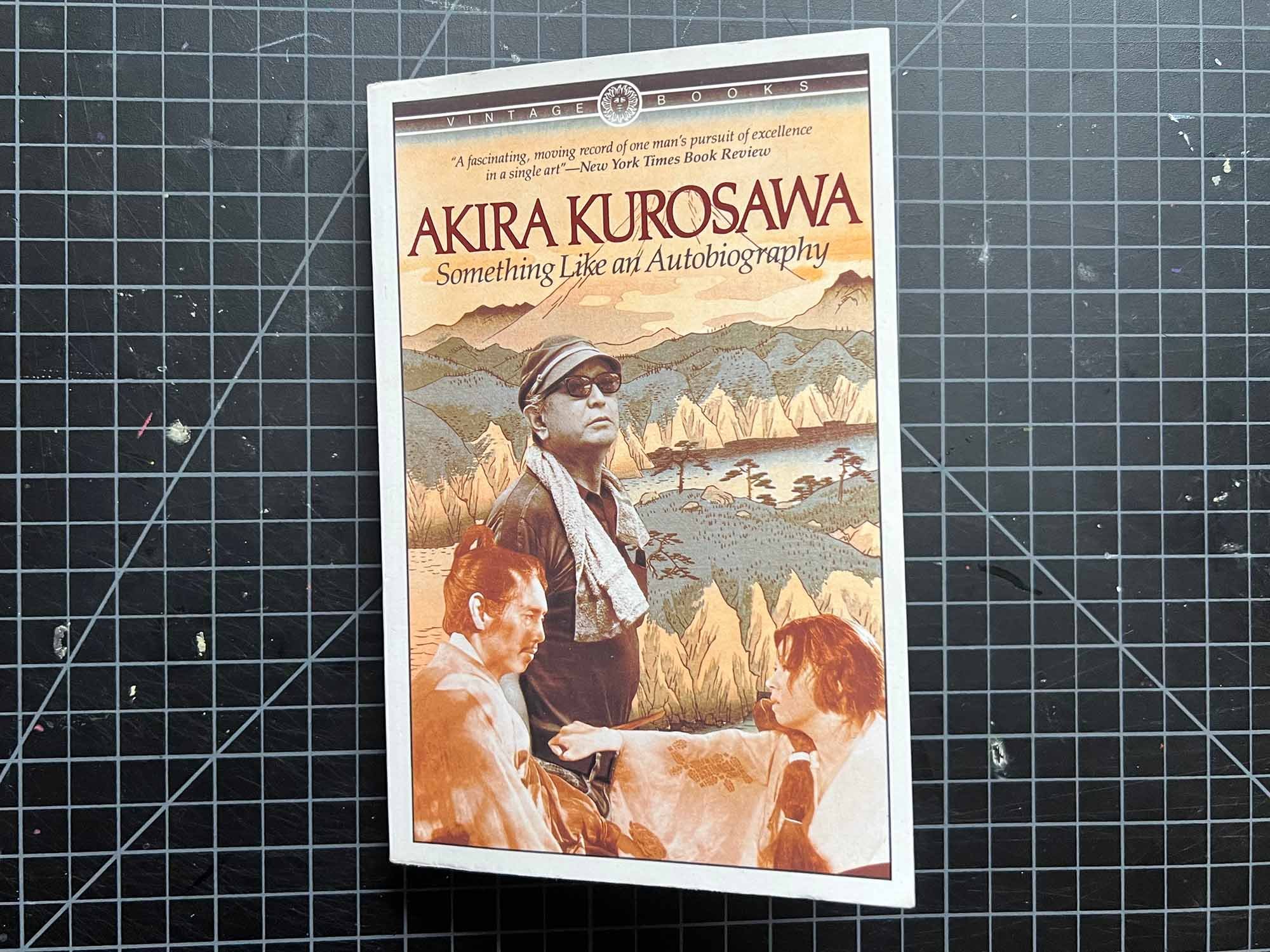The 3M Half Mask with P100 particulate filters is the best mask option for ceramic studios.
Silica dust is a real hazard in ceramics studios and it’s important to have the right mask. Cloth masks or basic nuisance-grade dust mask will not offer enough protection against silica. The best options are respirators with P100 or P95 filters, or N95/KN95 masks. This is also the level of protection businesses are required by OSHA to provide to employees if silica dust is present.
Respirable silica is very fine with almost invisible particles that can stay airborne for some time, and repeated exposure can lead to silicosis or black lung. To protect against silica, it is important that masks fit correctly. If air can leak around the sides, it really defeats the whole purpose. This is especially of concern if you have facial hair, as that can cause the mask to not be properly sealed to the face. In that case, you may need a full face mask or to trim your beard.
Overall, the best mask is going to be one that you reach for and wear during dust-generating tasks. Any protection is better than none. Personally, I use a respirator with P100 filtration whenever I am working with clay, plaster, wood, or other materials that create dust.
Also consider what is causing dust in your studio and seek to minimize that activity if possible. Keep an organized studio, use wet cleaning and sanding methods, and avoid creating dust. You may want to consider adding a dust collection system. For additional recommendations, visit our guides for cleaning tools and HEPA vacuums.
The reviews in this article are based on personal experience with a wide variety of masks along with experience working in ceramic studios for more than 20 years.
TOP PICK: 3M Half-Facepiece Respirator with P100 Filters
3M 6300 Half-Facepiece Mask without filters attached.
The 3M 6300 Half-Facepiece Respirator is a comfortable, reusable mask with filters that can be replaced as needed. This facepiece will take the round P95 or P100 particulate filters, or the cartridge style filters that are rated for particulates and some types of gases. Either will work, but you might find the round particulate filters to be more breathable. 3M also makes upgraded half masks (see below for more info) but this basic model is affordable, long-lasting, and will get the job done.
The Half-Facepiece respirator can be purchased as a plain mask, or packaged with filters or cartridge filters. Amazon has a variety of options; Home Depot and Lowes and other hardware stores tend to sell the more expensive version with cartridge filters. This may be useful if you also paint or have volatile gases in your studio, but the round P100 filters are perfect for ceramic studios where silica and other airborne dust particles are the main concern.
Note: this half-facepiece mask has unfiltered exhaust valves that are not appropriate for Covid safety in shared spaces.
3M 6300 Half-Facepiece Respirator
Available in size small, medium and large
Typical price
Respirator only: $14-$21
With P100 filters: around $25-$26
With cartridge filters: around $39
The pink, round 3M 2097 P100 filters will fit the half facepiece mask.
P100 Filters and other options
The round, pink 3M 2097 Filters rated to P100 will offer the highest level of particulate protection. You could go with the slightly cheaper, white P95 filters but in my opinion, P100 filters are the way to go.
When using these half masks, there can be some moisture buildup inside, but in general, I find them more comfortable than disposable masks.
Replacement prices:
P100 filters are around $14-$20 for a package of two sets of filters
DISPOSABLE MASK TOP PICK: 3M 8210 N95 Masks
The 3M 8210 N95 mask has straps that go over the head.
N95 or KN-95 Masks are NIOSH rated to filter 95 percent of dust particles and are good for multiple uses if kept clean. N95 Masks have straps that go over your head, making them fit more snugly. KN-95 masks typically have ear bands and fit more loosely, however, they often seem to be constructed with a bit more breathing room around your mouth.
A solid option for an N95 is the 3M 8210 N95 Mask. It typically comes in bulk packs where each mask costs about $1 to $1.50 each or around $20-$30 for a box of 20 masks.
ALTERNATE DISPOSABLE PICK: KN-95 Masks
Armbrust is an Austin, Texas-based mask manufacturer. Their KN-95 masks are available in a variety of colors. Shop at Armbrust
Throughout the Covid pandemic, the availability and quality of masks varied widely, with a variety of manufacturers attempting to fulfill the demand. There also have been reports of fake name-brand masks and other problems. It can be very confusing to buy a “real” N95 or KN-95 mask, as detailed in this NY Times report from 2021.
KN-95 masks, which have ear bands as opposed to the over-the-head N95 style, have become quite common but the number and variety available are confusing. One place to start is by reviewing CDC-approved mask manufacturers as explained here or listed by the CDC here.
The Texas-based, U.S. manufacturer Armbrust makes very high quality surgical masks, KN-95 masks, and kids KN-95 masks. Not only are they NIOSH approved, but the masks are available in a variety of colors and they are made in the USA.
Prices for Armbrust KN-95 range from $15 for a pack of 5 (or $3 per mask) to almost $1,000 for a pack of 540 masks. There are significant discounts if you subscribe to regular mask delivery.
Tightest Fit: Pouch or “Duckbill” Style N95s
The Kimtech Pouch Style N95 has two soft straps that go over your head.
They may look sort of funny, but in my experience, the pouch or “duckbill-style” N95s have the tightest fit of any disposable masks. You can see the mask material move in and out as you are breathing, and it seems to provide excellent coverage for Covid and dust.
A great option for this style of mask is the Kimtech line from Kimberly-Clark. Made in the USA, the Kimtech N95s cost $50 for a box of 50 masks.
More mask reviews below:
Those are my top picks for studio dust masks that are appropriate to use for silica. Keep reading for a deeper look at various half-facepiece masks and other disposable mask options.
Table of Contents
Half Facepiece Masks (3M 6300, 3M 6500, 3M 7500)
Filters for Half Facepiece Masks
RZ Masks
Disposable Masks
Summary
Half Facepiece Masks: 3M Models
As reviewed above, the top pick for a dust mask for a pottery or ceramic studio is a 3M 6300 Half Facepiece mask. It’s the basic model but will get the job done. But that’s not the only model made by 3M. There is also “upgraded” models made with softer plastic which also have a few different options for valves and latching straps.
The 3M 6300 Half Facepiece Mask.
3M 6000 series Half Facepiece Mask
The 6000 series is the standard mask in the 3M line, and seems to be readily available in the 6300 model, but you may occasionally see the 6200 or 6100. From what I can tell, these are all about the same. Made of “thermoplastic elastomer,” the masks will work with 3M filters or cartridge filters, and can be taken apart and cleaned.
The masks are available in size small, medium and large and range in price from around $14 to $20.
3M 6500 Cool Flow Half Facepiece Mask
3M 6503QL Rugged Comfort Quick Latch model.
The 3M 6500 series is termed the “rugged comfort line” and features a softer silicone face seal, a low profile design, a “Cool-Flow” valve, and some models have a quick-latch drop down feature.
The most common and popular model in this series appears to be the 6503QL Rugged Comfort Quick Latch Model. In addition to the silicone lining, this mask features upgraded straps.
Available in small, medium or large sizes, it typically retails for $28 to $31 for the mask and filters are extra. The model sold at Home Depot is around $50 and comes with cartridge-style filters.
3M 7500 Half Facepiece Mask
The 3M 7502 Half Facepiece Mask.
The 7500 Half Facepiece line from 3M has the same features as the 6500 line, with the silicone lining and Cool Flow valve, but it has one main difference: the exhalation valve air is routed down to reduce fogging. If you wear glasses or googles, you should consider this mask.
Available in small, medium, and large size, the 7500 line typically retails for $33 to $45 for the mask and filters cost extra. plus filters.
3M Filter Options for Half Facepiece Masks
There are two styles of filters available for 3M masks: round particulate filters and cartridge filters, which work for particulates and gasses. For ceramics, particulate filters are adequate but if you stain wood, paint, or other activities with volatile gases, the cartridges will be a better option.
Particulate Filters
There are two options for round particulate filters: P95 and P100. The P100 offers a higher level of filtration. For a ceramic studio, the 2071 or 2091 filters are your best options. There are a few other filter options aimed at welders, smelting, and chemistry applications.
The P100 filters cost around $14-20 for a box of 4 filters.
3M Cartridge Filters
3M Cartridges are almost all rated P100 and will filter particulates, gases, and vapors. There are a variety of options but the basic 60291 should cover most art studio applications. These are a bit overkill if you are just worried about silica / particulates, but are a good option if you are painting or working with anything that produces volatile fumes. The cartridges are generally about double the cost of particulate filters. At big box hardware stores, they typically only sell the cartridge filters or mask combos, as shown below.
The cartridge filters cost around $20-$30 for a replacement pair of filters. At the time of this write, Home Depot had the best deal on replacement cartridges.
For a complete overview of all the mask and filter options available from 3M, click here or here.
RZ Masks
The M3 Mask features 3 strap options. Pictured here is the dual strap configuration.
RZ Reusable Face Masks are an interesting mix of a disposable mask with some features of a respirator. Founded in 2010, you can now find these masks at a lot of hardware and home improvement stores, as well as online. The masks are not yet NIOSH rated but they now have some models with a European FFP2 rating. Full approval of these masks would be helpful in comparing these to other masks on the market, but in general these are great workshop masks and there are a variety of sizes and features. (For technical info on RZ masks and the testing they have undergone, click here. )
The M3 Mask from RZ is the top seller and features 3 different strap options so that you can find the perfect fit. The options include a neck strap, ear loops, or dual head strap (pictured at right). RZ claims a 50% increased airflow with their new filter options, and the same 99% filtration of particles down to 0.1 micron.
The M3 Mask retails for $40 and includes the 3 strap options, a carrying case, and 2 filters. Replacement filters cost $15 for a 3 pack.
The RZ M2.5 Two Strap Mask is an upgraded version of the M2 bask with two head straps.
The M2.5 Two Strap Mask from RZ features a mesh fabric, hook and two straps, with carbon filters that filter 99% of particles down to .1 micron. The filters are somewhat similar to a disposable mask and fit into the bigger mask housing. These masks were designed with unfiltered exhalation valves but the company now makes valve caps for use in shared environments where only filtered exhalation is recommended for the best Covid safety.
You will need to replace the carbon filters over time. Think of this mask as a more comfortable hybrid of a respirator and a disposable mask.
The RZ M2.5 retails for $30 and comes in a variety of colors. Replacement filters are available in a 3 pack for $8 to $15.
The Original M2 mask from RZ has a neck strap.
RZ makes a variety of masks with different strap configurations and colors, along with filter options.
Other Disposable Masks
The 3M N95 and KN-95 masks listed at the top of this post are great options, but there are other disposable masks.
Moldex 2300
The Moldex 2300 Mask.
The Moldex 2300 is another N95 particulate respirator that also features an exhaust valve. This helps reduce moisture buildup.
The Moldex 2300 is available in a 10 pack for around $44.
The Moldex 2200 (does not have an exhaust valve) is available in a 20 pack for around $26.
Honeywell Nuisance Masks
Honeywell Nuisance Masks
The Honeywell Nuisance Masks are cheap and easy to find, but they are not rated for hazardous dust or particulate use. Too often, I’ve seen these as the masks offered to students in ceramic classes. I guess they are better than no mask but there’s no reason to be casual about silica dust. These might be fine in a pinch, but they are not NIOSH approved and may give a false sense of security. For art studios, it’s best to use the proper N95 or higher masks.
The reason these masks are shown here in this review is that this is what I have seen stocked in many ceramic studios for student use. They are not suitable for silica protection.
These masks cost around $15 for a 50 pack.
Summary
This post has covered a variety of masks to deal with silica and other particulates in a ceramic studio. The first step should be to avoid making dust if possible. But to deal with silica, use a NIOSH approved half facemask respirator, or N95 rated disposable masks. Your long-term health is worth it, and investing in quality personal protective equipment is always a good idea.
What type of mask do you use to protect against silica and other particulates? Let us know in the comments.
